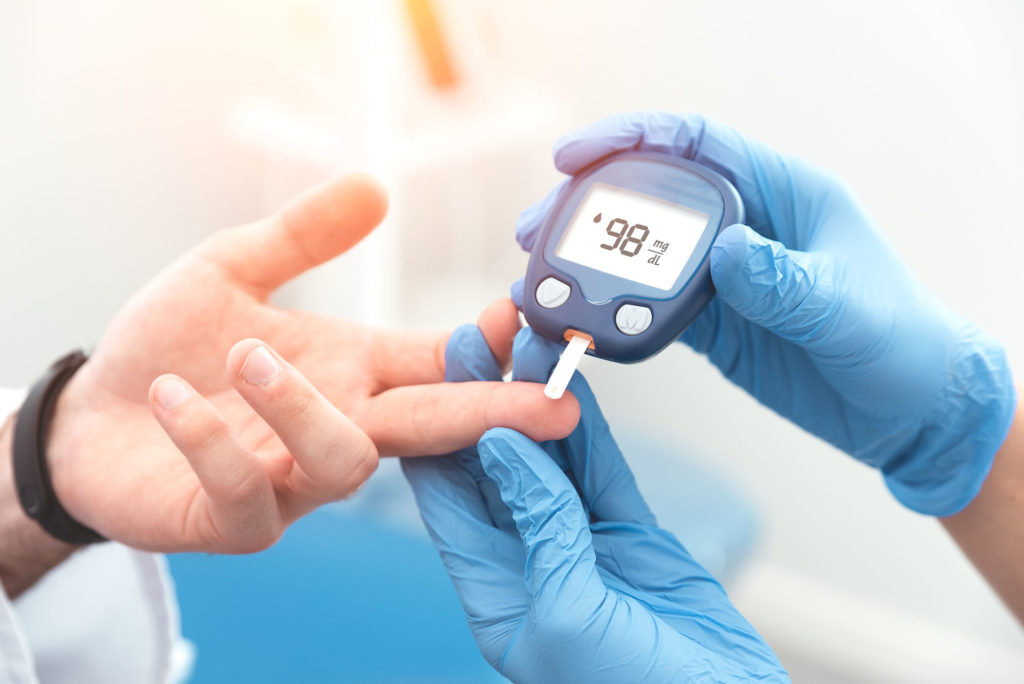Overview
Diabetes is a chronic condition that affects millions of people worldwide. For those with diabetes, managing the cost of diabetes medications and care can be a daily struggle that impacts their health and finances. The cost of diabetes care, including medications, supplies, and doctor visits, can add up quickly and become a significant burden for individuals and families. However, there are ways to manage the cost of diabetes care without sacrificing quality. In this article, we will provide practical tips for managing the cost of diabetes medications and care. By following these tips, people with diabetes can stay healthy while controlling their healthcare costs. Whether you are newly diagnosed with diabetes or have been managing the condition for years, these tips can help you make informed decisions about your care and save money.

Costs Associated with Diabetes Care
There are several costs associated with diabetes care. These can include:
- Medications: People with diabetes may need medications to manage their blood sugar levels, including insulin, oral medications, and other injectable medications.
- Supplies: Diabetes supplies such as glucose meters, test strips, lancets, syringes, and insulin pens or pumps can be costly.
- Doctor visits: Regular visits with healthcare providers, including primary care physicians, endocrinologists, ophthalmologists, and podiatrists, are essential for diabetes management and can add up in cost.
- Lab tests: Frequent lab tests to monitor blood sugar levels, cholesterol, kidney function, and other health markers are an important part of diabetes care but can be expensive.
- Hospitalizations: Diabetes complications, such as infections, heart disease, and kidney disease, can lead to hospitalizations that can be costly.
- Lifestyle changes: Making lifestyle changes such as healthy eating, regular exercise, and quitting smoking can also be an important part of diabetes management but may require additional costs for gym memberships, healthier food options, and smoking cessation programs.
Managing each of these six different costs associated with diabetes care can have a direct impact on the other cost types. For example, managing medication costs through the use of generic drugs or patient assistance programs can free up funds for other aspects of diabetes care, such as doctor visits or lab tests. Similarly, making healthy lifestyle changes can reduce the risk of diabetes complications that could lead to hospitalizations or costly treatments, while also potentially reducing the need for medications and supplies. By understanding the interconnectedness of these different cost types, people with diabetes can make informed decisions about their care that can help reduce the overall cost burden of managing the condition.
Tips for Managing the Cost of Diabetes
Understand Insurance Coverage
Managing the cost of diabetes care often starts with understanding your insurance coverage. Insurance policies can be complex, and it’s important to know what’s covered and what isn’t to avoid unexpected costs. Here are some tips for understanding and making the most of your insurance coverage:
Learn the basics of your insurance policy
- Understand the different types of insurance coverage, such as HMO, PPO, or Medicare
- Familiarize yourself with key terms, such as deductibles, copays, and out-of-pocket maximums
- Know which healthcare providers and pharmacies are in-network and which are out-of-network
Know what’s covered
- Check your insurance policy to see what diabetes care services and supplies are covered, including medications, doctor visits, lab tests, and diabetes education programs
- Understand the limits and restrictions on coverage, such as the number of doctor visits per year or the quantity of medication covered per month
Maximize your benefits
- Take advantage of preventive care services, such as annual physicals, eye exams, and foot exams, which may be covered at no cost
- Look for cost-saving opportunities, such as using mail-order pharmacies for long-term medications or participating in wellness programs that offer discounts on gym memberships or health coaching
Keep track of your out-of-pocket expenses to ensure you’re staying within your budget and taking advantage of any available reimbursements or tax credits.
Take Advantage of Preventive Care
Preventive care is an essential part of managing diabetes, and it can also help keep costs down by catching potential problems early. Here are some tips for taking advantage of preventive care:
Schedule regular checkups
- Make sure to schedule regular checkups with your healthcare provider to monitor your blood sugar levels, cholesterol, and other health markers
- Discuss any concerns or symptoms with your healthcare provider to catch potential problems early
Get regular eye exams
- Diabetes can lead to eye problems, so it’s important to get regular eye exams to catch problems early
- Look for free or low-cost eye exams through community health centers or non-profit organizations
Schedule regular foot exams
- Diabetes can also lead to foot problems, so it’s important to get regular foot exams to catch problems early
- Check with your insurance provider to see if foot exams are covered, and if not, look for free or low-cost options through community health centers or non-profit organizations
Shop Around for Supplies
Diabetes supplies, such as glucose meters, test strips, and lancets, can be costly. Here are some tips for shopping around for supplies:
Compare prices
- Check prices at different pharmacies to find the best deals on diabetes supplies
- Look for discounts or bulk purchasing options to save money
Use store-brand or lower-cost alternatives:
- Look for store-brand or generic diabetes supplies to save money
- Check with your insurance provider to see if they cover the cost of these alternatives
Consider purchasing in bulk:
- Purchasing diabetes supplies in bulk can help save money over time
- Look for online retailers or membership programs that offer bulk purchasing options
Decrease Medication Costs
Use Generic Medications
Using generic medications can be a cost-effective way to manage diabetes. Here are some tips for finding and using generic diabetes medications:
Ask your doctor:
- Talk to your doctor about whether generic medications are an option for you
- Ask about potential side effects or concerns with switching to a generic medication
Check with your insurance provider:
- Check with your insurance provider to see if they cover generic medications
- Understand any restrictions or requirements for using generic medications, such as prior authorization
Look for cost-saving opportunities:
- Check online or at different pharmacies to find the best prices for generic diabetes medications
- Consider using a prescription discount card to save money on medications
Access Diabetes Medication Coupons & Patient Assistance Programs
Patient assistance programs can be a valuable resource for those struggling to afford the cost of diabetes care. Here are some tips for finding and applying for patient assistance programs:
Check with the medication manufacturer:
- Many medication manufacturers offer coupons and patient assistance programs to help cover the cost of medications
- Check with the manufacturer of your diabetes medications to see if they offer a patient assistance program
Look for non-profit organizations:
- Non-profit organizations, such as the American Diabetes Association, may offer resources or grants to help cover the cost of diabetes care
- Check with local organizations or national organizations to see what resources are available
Ask your healthcare provider:
- Your healthcare provider may be able to provide resources or recommendations for patient assistance programs
- Talk to your doctor or nurse about your concerns with the cost of diabetes care
Take control of your diabetes care and finances by exploring our medication pages. You’ll find valuable information on how to access coupons and patient assistance programs for specific diabetes medications. Here are few medications we can help with:
NovoLog, Humalog, Levemir, Lantus, Toujeo, Ozempic, Jardiance, Farxiga, Januvia, Trulicity

Controlling Blood Sugar
Controlling blood sugar is an essential part of managing diabetes, and it can also help keep costs down by reducing the risk of complications. Here are some tips for controlling blood sugar:
Follow a healthy diet:
- Eating a healthy diet can help control blood sugar levels
- Look for low-cost options, such as fresh fruits and vegetables, lean proteins, and whole grains
Exercise regularly:
- Regular exercise can help control blood sugar levels
- Look for free or low-cost options, such as walking or biking
Manage medications:
- Take medications as prescribed to help control blood sugar levels
- Talk to your doctor about any concerns or questions about medication management
Maintaining a Healthy Lifestyle
Maintaining a healthy lifestyle can help control blood sugar levels and reduce the risk of complications. Here are some tips for maintaining a healthy lifestyle:
Quit smoking:
- Smoking can increase the risk of complications from diabetes
- Look for free or low-cost smoking cessation programs or resources
Manage stress:
- Stress can impact blood sugar levels and overall health
- Look for free or low-cost stress-management resources, such as meditation or yoga
Get enough sleep:
- Sleep is important for overall health and blood sugar control
- Develop healthy sleep habits, such as going to bed at the same time each night and avoiding screens before bed
Staying Organized
Staying organized can help keep diabetes care on track and avoid unexpected costs. Here are some tips for staying organized:
Keep track of medications
- Develop a system for keeping track of medications, such as a pillbox or medication reminder app
- Understand any potential side effects or interactions with other medications
Schedule appointments
- Use a calendar or reminder app to schedule regular appointments with healthcare providers
- Plan ahead for any required lab tests or screenings
Keep records
- Keep track of test results, doctor notes, and insurance paperwork in a designated folder or binder
- Understand any billing statements or explanations of benefits to avoid unexpected costs
Managing the cost of diabetes care can be a challenge, but there are many tips and resources available to help keep costs down. By understanding insurance coverage, taking advantage of preventive care, shopping around for supplies, using generic medications, considering patient assistance programs, controlling blood sugar, maintaining a healthy lifestyle, and staying organized, people with diabetes can take an active role in managing their care and costs. With the right resources and support, managing diabetes can be both effective and affordable.

Type 2 Diabetes
A person may be diagnosed with type 2 diabetes when their body is not sensitive enough to the insulin they already produce. This causes too much sugar to be in the blood circulating the body. Over time, problems can occur with the nervous, immune, and circulatory systems.
Managing type 2 diabetes has many options. The first recommended steps involve increasing activity and eating a healthier diet.
People with Type 2 diabetes should check their blood sugar levels daily through a glucose monitor. Typically one or more oral medications are given, and in some cases insulin might be used.
Causes of Type 2 Diabetes
Type 2 diabetes occurs when the body’s insulin sensitivity is too high or the pancreas is not producing enough insulin. The pancreas tries to make more insulin to make up for the lack of glucose in the cells. What happens is that the pancreas can not keep up and instead the glucose remains in the bloodstream.
To summarize:
- The body has abnormally high insulin resistance
- Pancreatic cells respond by producing excessive amounts of insulin
- Over time, the pancreas “wears out” and cannot produce as much insulin, which makes the condition worse
Many medical and health issues can arise from high blood sugar levels. These include kidney disease, heart disease, and vision loss.
Symptoms of Type 2 Diabetes
A person may have type 2 diabetes if they exhibit the symptoms below:
- An increased need to drink liquids
- Increased hunger
- Not being able to heal promptly with wounds
- Not having a lot of energy during the day
- Blurred vision
- A sudden decrease in weight
- A sensation of numbness or tingling in the hands and feet
- Dry skin
Treatment of Type 2 Diabetes
There are several options to treat type 2 diabetes:
- Start a weight loss program
- Change eating habits to incorporate healthy eating
- Include at least 30 minutes of exercise 5 days a week
These first steps of a lifestyle change can be big changes to someone. A physician will guide patients through these changes.
If the lifestyle changes do not help, then a physician will prescribe medication.
Medication for Type 2 Diabetes
People with type 2 diabetes may take the following medications:
Gestational Diabetes
In the United States, 10% of pregnant women have gestational diabetes according to the American Diabetes Association.Causes of Gestational Diabetes
It is not clear what causes gestational diabetes. However, it is probably related to the hormonal changes that happen during pregnancy. Gestational diabetes occurs when the hormones are changing during pregnancy. The hormone levels change can affect the levels of insulin, which causes abnormally high blood sugar. Gestational diabetes usually resolves away after the baby is born. However, in some cases the mother can develop type 2 diabetes after gestational diabetes.Symptoms of Gestational Diabetes
Some of the symptoms of gestational diabetes include:- Feeling more thirsty than normal.
- The urge to urinate more.
Treatment of Gestational Diabetes
To treat gestational diabetes pregnant women need to keep track of glucose levels. Daily monitoring of glucose helps improve gestational diabetes. The following glucose levels are guidelines for pregnant women:- Before a meal: 95 mg/dl or less
- One hour after a meal: 140 mg/dl or less
- Two hours after a meal: 120 mg/dl or less
- Special meal plans.
- Daily physical activity.
- Insulin injections.
Medications for Gestational Diabetes
Insulin is commonly prescribed for gestational diabetes because it is known to be safe for the developing fetus. While insulin is considered first-line treatment, two alternative oral medications include metformin and glyburide. However, the oral agents cross the placenta and their long-term safety is unclear for the baby.Prediabetes
Prediabetes is a condition where a person has higher than normal blood sugar levels. This does not put them into the classification of having type 2 diabetes. It has the same long-term effects as type 2 diabetes if it goes undiagnosed or treated. More than 1 in 3, or 96 million adults have prediabetes. Out of the 96 million, 8 in 10 do not even know they have prediabetes.Causes of Prediabetes
The cause of prediabetes is unknown but here are a few factors:- Genetics
- Being overweight for some time.
- Lack of physical activity.
- Extra fat around the abdomen.
Symptoms of Prediabetes
Symptoms of prediabetes are like that of type 2 diabetes which include:- Increased urge to urinate
- Increased appetite
- An increased thirst
- Blurred vision
- Fatigue
Treatment of Prediabetes
Treatment is usually a lifestyle change that can help control blood sugar levels. Some treatments include:- Increase activity levels to at least 150 minutes a week.
- Weight loss
- Eat healthier foods that include more fruits and vegetables.
- Smoking cessation
- Medication.


